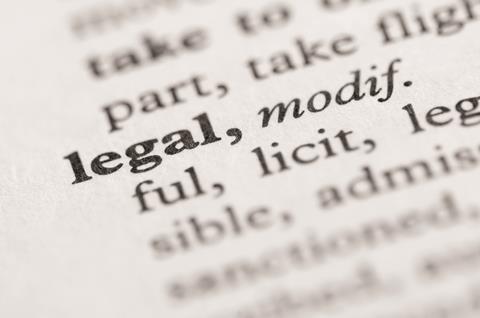Although courts have been told to take account of the pandemic, this may not translate to a lengthy delay
The world of construction dispute resolution is proving to be very adaptable at coping with the restrictions caused by covid-19. The Technology and Construction Court (TCC) continues to hold hearings, including trials. These are carried out remotely using Skype for Business. Participants may be sitting in their own homes but they are required to dress as they would in court.

Meanwhile, mediations are going ahead via Zoom or similar methods. The mediator is able to place attendees into separate “rooms” in the same way that he or she would usually do in person. The absence of face-to-face interaction, often so important in gauging people’s responses, is a disadvantage. However, the general feedback from these mediations seems to be positive.
Courts and adjudicators will inevitably be faced with requests from parties to be allowed more time, due to covid-19 issues. For adjudicators, the Construction Act in effect places limits on their power to extend time for the decision, unless the parties agree. However, the real battles over time tend to be fought where a date for the decision has been set and the argument is then about how the available time is to be carved up. Here, adjudicators have wide discretion. Cases tend to depend on their facts.
An interesting example of how one judge approached an application for further time occurred recently in the TCC in Liverpool, in Municipio de Mariana vs BHP Group plc. This was a complex multi-party case, in fact a class action, in which the claimants included some 200,000 individuals and various businesses. They were claiming damages arising from the collapse of a dam in Brazil. The judge had previously fixed seven days for a preliminary hearing on jurisdiction. Broadly, this was to determine whether the action should be tried in England or in Brazil.
The defendants asked the court for a further six weeks or so on top of the period previously given to them, to allow them to put in further evidence for the hearing on jurisdiction. They pointed to difficulties caused by covid-19. For example, various witnesses were in Brazil. It was not easy to collate evidence and documents remotely. Also, air travel to Brazil was now prohibited. Unfortunately, it seemed that allowing the defendants their extra time could cause the jurisdiction hearing to be postponed for some months.

The judge’s starting point was the “overriding objective”. This is the fundamental principle that guides the courts. It requires them to deal with cases justly, expeditiously, fairly and proportionately, taking into account the amounts involved and the complexity of the issues. The judge also noted that the High Court has issued specific covid-19 guidance to the effect that the court should bear the pandemic in mind when dealing with applications for more time.
The High Court has issued specific covid-19 guidance to the effect that the court should bear the pandemic in mind when dealing with applications for more time
Lawyers, said the judge, could be expected to make themselves familiar with modern technology. They might have to go further than would be expected in normal circumstances. They should be willing to “roll up their sleeves” to cope with problems. The same applied to expert witnesses – though not to private, non-expert, individuals. However, the judge continued, a court should take into account the fact that remote working would often lead to tasks taking longer than normal. In this case, obtaining evidence from witnesses in Brazil would be particularly laborious, given covid-19 restrictions.
The judge noted that whereas lawyers and experts would usually be in teams, working in well-equipped offices with IT support staff on hand, here they would be working apart, in various locations, sometimes with low-quality internet connections, and with limited IT support. Those working from home might also be caring for sick family members or for children, or in circumstances where they were providing support to vulnerable relatives elsewhere. Taking all of these factors into account the judge gave the defendants the time that they asked for, but managed to avoid a lengthy postponement of the hearing date.
Adjudicators and other tribunals are frequently called upon to make procedural decisions of this nature. The message seems to be that, although some concessions for covid-19 will be considered, and some allowances made for extra time needed, lawyers and expert professionals will be expected to find a way through the problems. It will be interesting to see how many of the ideas taken from the world of remote hearings will be retained when there is eventually a return to office life.
Ian Yule is construction and engineering partner at Shoosmiths


























No comments yet